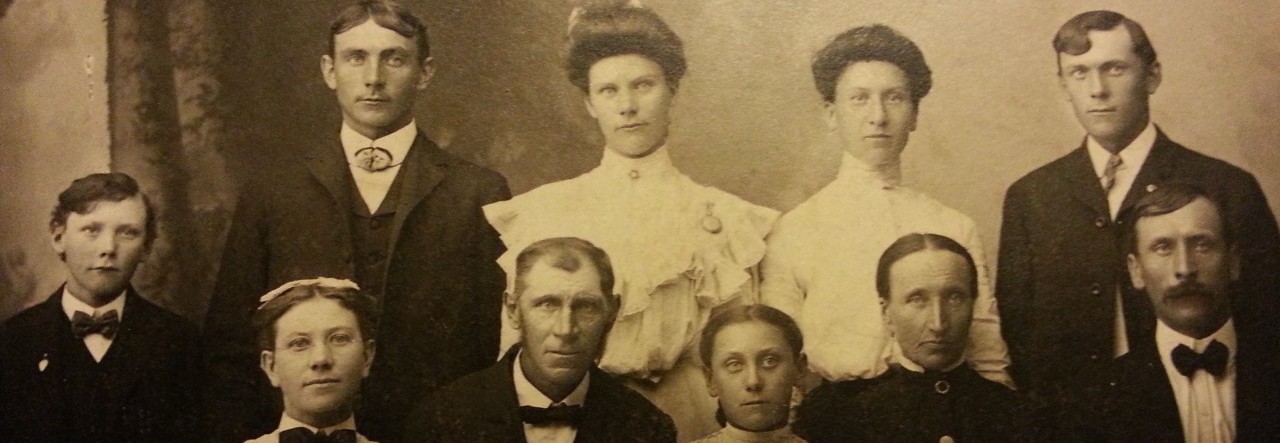It’s almost summer! Which means travel! Genealogists will travel all over exploring where their ancestors may have left records. That means exploring cemeteries, county records, local libraries, and, specifically, archives.
So what are archives and what could you find in them? Archives hold many published and unpublished records that tend to be very unique. You’ll find items like diaries, letters, books, manuscripts, etc that tend to be from the area, although not always. Some places, like universities, may gather items that they know will be used by staff and students research specialties. All of these items though are very one-of-a-kind type of records that can be a great find for any genealogist.
These records are available to people, but you normally can’t just walk in on any day and peruse the shelves like at a library. Because of the nature of these unique records and their age, most archives keep their records in controlled rooms and restrict their access to prevent wear and tear. These restrictions make researching in an archive a very unique experience as well as one that some genealogists find intimidating, but it doesn’t need to be.
With that in mind, here are ten tips for successfully researching in an archive:
![By Tony Webster (Own work) [CC BY-SA 4.0 (http://creativecommons.org/licenses/by-sa/4.0)], via Wikimedia Commons](https://i0.wp.com/www.copperleafgenealogy.com/wp-content/uploads/2015/04/Archives_of_the_United_States_of_America_2014-06-01_1401644727.jpg?resize=629%2C629)
By Tony Webster (Own work) [CC BY-SA 4.0 (http://creativecommons.org/licenses/by-sa/4.0)], via Wikimedia Commons
- Know your research questions. Because of the restrictive nature of archives, this is not a place for you to have a vague idea of what you want answered. Be sure you know exactly what you are looking for to get the most out of your research.
- Know what types of records the archives will have. Many places have a certain focus for their record collection, especially in universities. For example, I live near the University of Notre Dame and their university archives have items about the Catholic Church in America among other items. This helps you to understand what archives you should visit depending on your research question(s).
- Know the collections in the archives. Once you know what archive you want to visit, then you’ll want to know what collections they have. Many places have websites that will list their collections and records so you can do some research before you go.
- Know what records you’d like to see. Write down the information on specific items in the collections you want to look at. When you contact the archives, you’ll then have a list of items you can tell them you’re interested in and they’ll let you know if the records are available or not.
- Know the hours and open days. Not all archives have regular business hours. Some you may have to set up an actual appointment to get to see what you want. Also be sure you know about parking – where you can park and what it will cost – before you show up so you won’t be late for an appointment.
- Know the restrictions. Some places you can bring in a laptop, others you cannot. Some allow only pencils and paper. Some have lockers for your items, some do not. Some allow cell phones/cameras/etc., some do not. Some require archival gloves, some do not. Check out the website to see what is or isn’t allowed in their reading room.
- Know their copying rules. Some may allow you to make your own copies on their machines. Some may have you ask a worker to make a copy (this is more common for larger and more fragile documents). Some may have a copy card system or use only USB drives. Be sure you also know fees and if they only accept cash, card, or both. Also, some items may not be allowed to be copied so you’ll want to know that so you can prepare to transcribe them instead.
- Contact the archives. This can be done by email, phone, or letter (email is probably the preferred method now but each archive will differ). Let them know when you plan on visiting to set up an appointment if need be and let them know what records you will want to see as mentioned in #4.
- Bring ID and come early. Many archives require some form of ID before you can research. Some also have you fill out some information and they’ll issue you a researcher’s card (this link is to NARA’s information on theirs). This can take 15-20 minutes so be sure to arrive early for your appointment.
- Take good and thorough notes. That way your steps can be retraced if necessary and if you need more information after you return home, you can email/call them and be very specific on what you need more information on. And, as always, cite your sources!
BONUS: ALWAYS check out the archives website for the best information on how to research in their facility specifically.
Happy hunting and travels!

